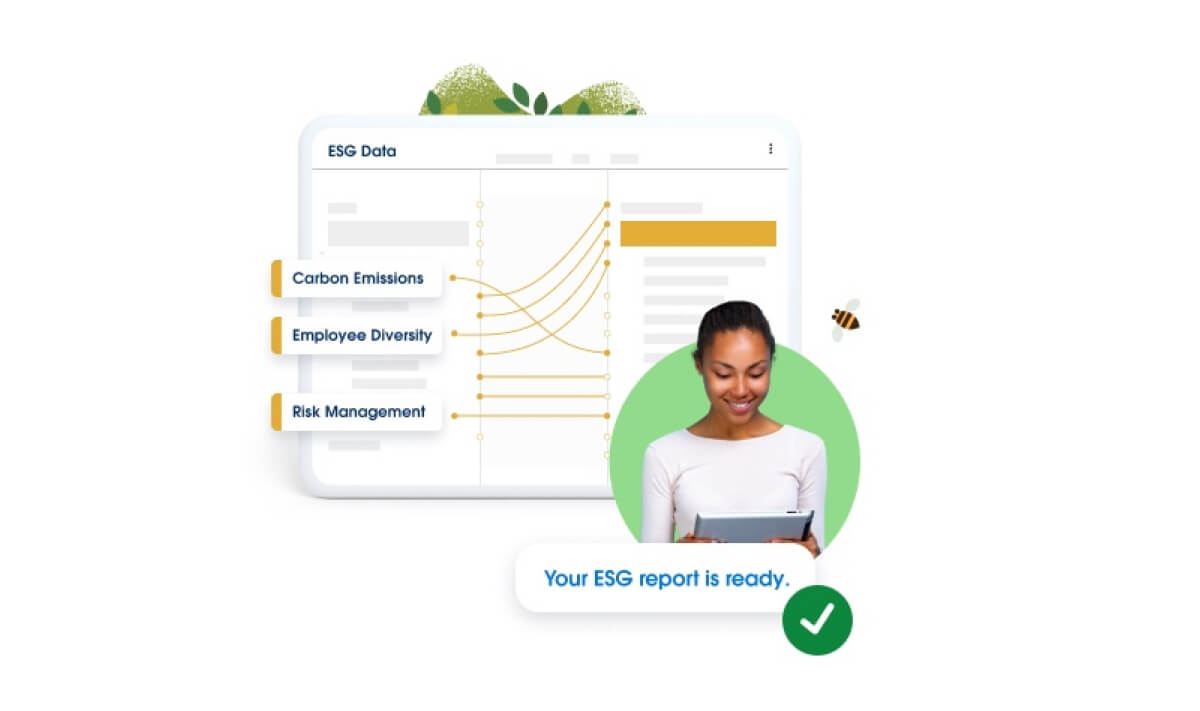How ESG Delivers Business Value
Discover seven ways ESG strategy delivers business value; then take action at your organization.
The demand for environmental, social, and governance (ESG) reporting has never been greater. Yet as organizations worldwide face increased pressure from growing ESG regulation and disclosure requirements, they still need to cut costs, reduce complexity, and find more efficient ways to do business. What you may not realize is that implementing an ESG strategy can have significant benefits for your organization — including cost savings, risk mitigation, expanded capital access and market value, and improved brand perception.
By proactively creating an ESG strategy, you can shift your business and operating model toward sustainable practices. Making sustainability a part of your corporate strategy will help future-proof your business model before ESG regulations require you to. This will set you on a path to ESG maturity, which can serve as an indicator for future business performance in capital market valuation and other areas.
In this report, we identify seven ways ESG strategy delivers measurable value to your organization. Then, we show you how to use this potential to create your strategy and take action.

What are ESG and ESG strategy?



7 Ways ESG Strategy Delivers Value to Your Organization

Sustainable business practices increase efficiency, leading to reduced costs.
The Business Case for ESG Strategy
In this report, you'll learn:
- How an ESG strategy delivers value to your organization
- How to realize the value of an ESG strategy
- How to make the case for your company and take action
Fill out the form to read the full article.
More Resources

Guide
Travel sustainably, without grounding your employees.

Demo
ESG readiness starts here.

Guide
Get started with carbon accounting.





